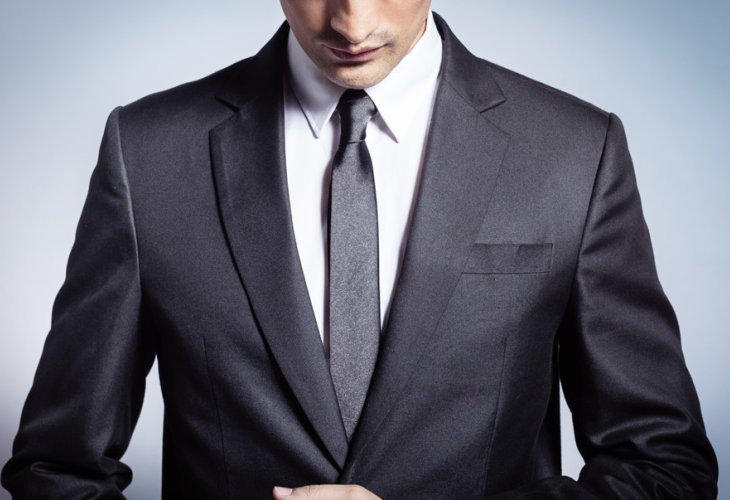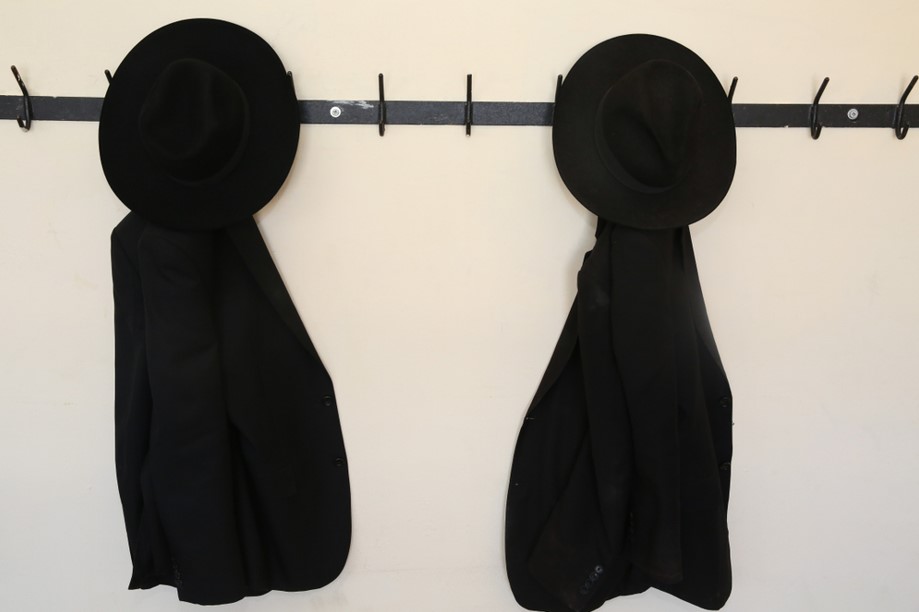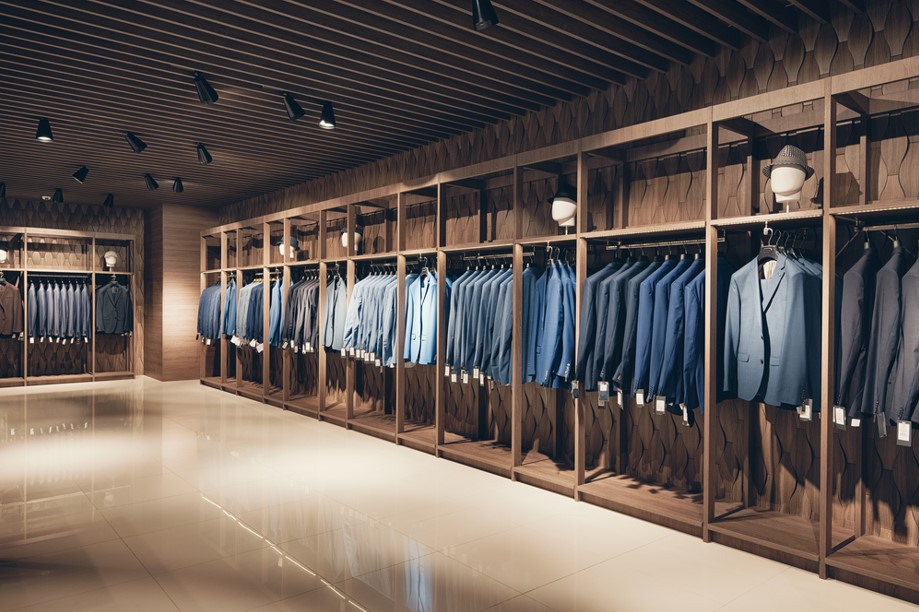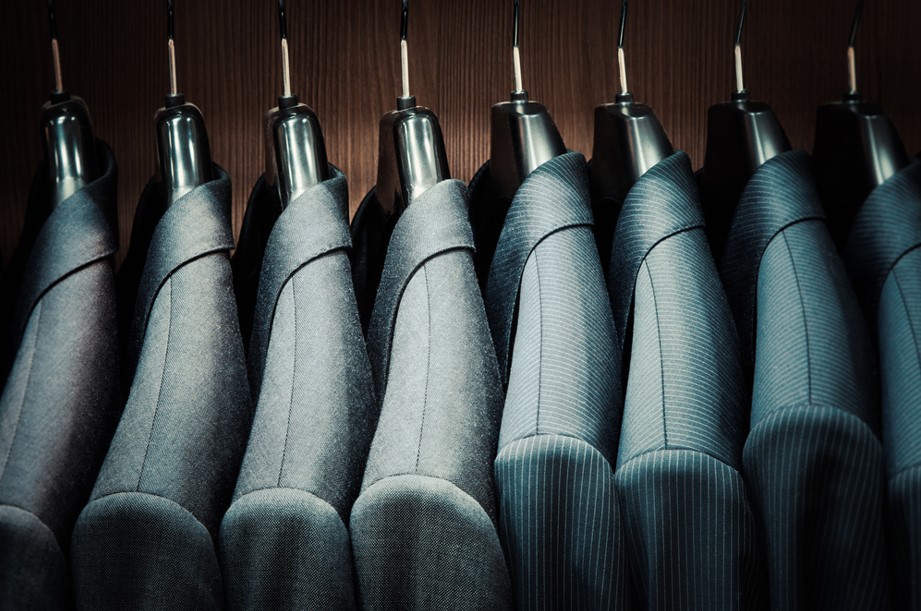This is My Exchange: The Sums Rolling in Male Fashion Stores on Holiday Evenings
Suits ranging from 400 to thousands of shekels – these are the figures of the men's fashion market which is growing, advancing, and generating quite a bit of money. A fascinating journey into the world of men's fashion on the eve of Passover.
 (Photo: shutterstock)
(Photo: shutterstock)It's no secret that when talking about men's fashion in the Haredi sector, it involves much more than a tailored suit and an ironed shirt. Anyone who truly knows the Haredi world can identify a person’s characteristics through their suit, even knowing where they study and what group they belong to.
A journey into the world of Haredi attire is nothing short of fascinating. On the eve of Passover, when everyone rushes to the stores, we set out to explore it, and discover what truly lies behind the suit.
An Evolving Industry
The suit fashion industry in the Haredi community generates very high amounts, especially during the periods on the eve of the Tishrei holidays and Passover. Although billions worldwide wear suits every day, the suit of a Haredi man is unlike the suit of a Parisian lawyer or a Swiss accountant.
 (Photo: shutterstock)
(Photo: shutterstock)A Haredi man wears his suit all the time – morning, noon, and evening, both when leaving the house and during prayer, at weddings and travels. Some even wear a suit for short outings. This is also why the suit must be of high quality and made from comfortable and breathable fabric. In the Haredi community, particular attention is given to the suit.
Over the years, the suit industry in Israel has developed rapidly. If about twenty years ago one could count the men’s clothing stores in Haredi cities on ten fingers, today you will find dozens of such stores in each city. The variety available today does not compare to the past - if suits once came in black, gray, and dark blue with a regular or broad cut (known as 'American'), today every standard store offers between 60 to 70 diverse models.
From Bar Mitzvah Suits to Groom's Suits
Who dictates the suit designs and models we see? How are they determined?
As one might suspect – the world dictates the fashion. Like any other fashion, here too manufacturers travel to exhibitions and see what's happening globally. They then stick to what suits the Haredi sector and its desires.
Of course, when it comes to the Haredi public, everything is more reserved and subdued – for example, if striped suits are very fashionable, manufacturers will initially print thin, barely noticeable stripes, and only later make them more prominent.
What style of suit is preferred in the Haredi community?
There is no single answer, as the Haredi community is very diverse and broad. The suit varies according to the yeshiva the young man attends, and of course, there's a big difference between a young bachelor and a father.
From inquiries in stores, one can hear that young men usually want new and up-to-date goods, while young married men prefer the classical and conservative line. Moreover, for the young married men, the practicality of the suit is also important – it needs to be comfortable, washable, and durable, whereas the young men focus mainly on the suit’s appearance, even at the expense of comfort.
 (Photo: shutterstock)
(Photo: shutterstock)A yeshiva student typically buys a suit once a year – usually ahead of Passover or Sukkot. During these times, special funds for yeshiva students often cover costs, offering vouchers that allow for particularly low prices.
Young married men, on the other hand, may visit a suit store every five years, and even then look for the cheapest suit to save costs. It is very common to purchase two pairs of pants for a suit. Unlike the suit, which is dry-cleaned occasionally, pants are often washed more frequently.
Anyway, what is common to all is the general knowledge in the subject. While others who wear suits, such as Knesset members and lawyers, may not know which suit fits them, every young Haredi youth can tell you that a wool suit is less high-quality, and there's a variety of different cuts. Usually, they'll know which type of cut fits them precisely.
Furthermore, one cannot ignore that there are brand suits that are particularly luxurious. These suits are priced much higher, even five times that of standard suits. Typically, a standard young man wouldn’t consider purchasing them, but businessmen, Knesset members, and government office security unit members look for them specifically. Outwardly, it may not be possible to identify them as branded suits, but their quality is very high.
Price of a Bar Mitzvah suit: 400-500 shekels
Price of a regular suit: 700-1000 shekels
Price of a synthetic materials suit: 400-600 shekels
Price of a single pair of pants: 150-250 shekels
 (Photo: shutterstock)
(Photo: shutterstock)Not Just a Shirt
Along with the suit, a shirt is usually purchased as well. Someone looking at shirts worn in the Haredi community might struggle to notice the differences between them. They appear so similar, even identical. But if they take a closer look, or even touch them, they'll feel the difference clearly. If they ask Haredi women, they'll certainly hear a detailed explanation about why it’s worth spending a little more on a shirt to get one made from non-wrinkling fabric.
By the way, here’s a tip: the simplest shirts usually contain a low percentage of cotton, while quality shirts contain a high percentage of cotton. A quality shirt is also more pleasant to wear and will generally last longer, won’t fall apart in the wash, and the collar will remain firm, even without ironing. Convinced?
Speaking of ironing, in recent years, shirts with a special technology called non-iron, which do not require ironing at all, have appeared on the market. In the past, these shirts were not sold in Israel, and young men would order them specially from abroad. Today, they can be found domestically and at a reasonable price. However, it is important to know that after a year the quality of these shirts decreases, and they require some ironing.
Price of a high-quality shirt: 60-120 shekels
Non-iron shirt ( non iron): 130-180 shekels.

